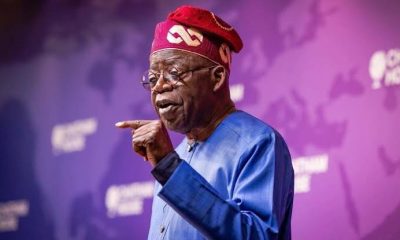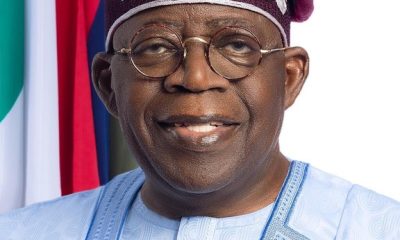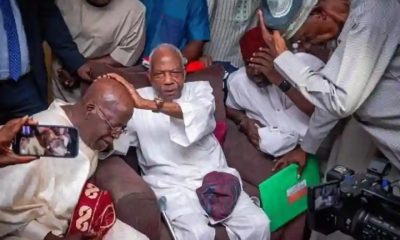News
Students Loan Begins September/october — Tinubu
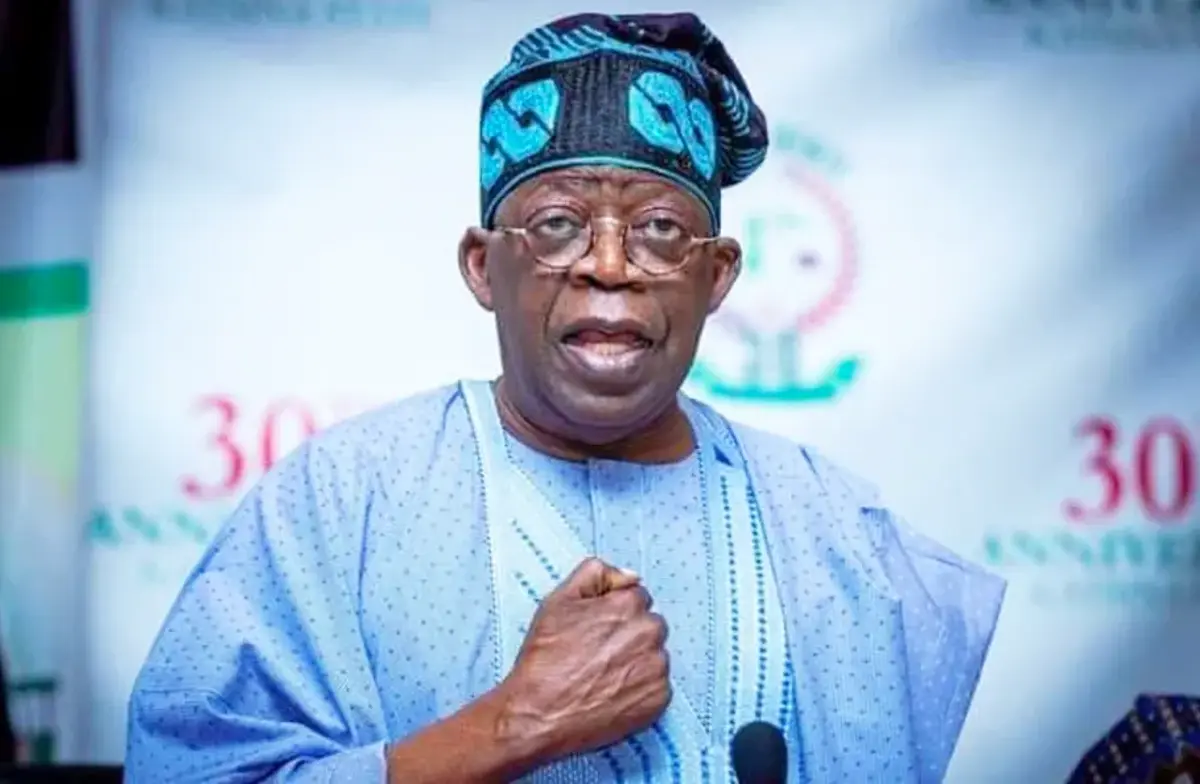
The Federal Government, Wednesday, said it had begun putting all necessary measures in place to ensure students loan begin between September and October 2023.
The Permanent Secretary, Federal Ministry of Education, Andrew David Adejo, who revealed this while speaking to newsmen in Abuja, said already, President Bola Tinubu has approved a committee made up of ministries and agencies to see to the realization of the Students Loan Bill he recently assented to.
The Students Loan Bill, sponsored by the Speaker of the 9th House of Representatives, Femi Gbajabiamila, provides for interest-free loans to indigent Nigerian students.
The law is to provide easy access to higher education for indigent Nigerians through interest-free loans from the Nigerian Education Loan Fund, the Permanent Secretary said.
Adejo said “The bill is to make sure that every Nigerian has access to higher education through what we called the Higher Education Nigerian Bank.
“Learning from past mistakes, the bank is not going to be the type that will sit down and be collecting application loans, it will also perform normal banking functions and make sure loans are given because we had cases of loan recovery in the past.
“The Act as it is tells us the process, but as I speak with you today, the president has approved the committee made up of the Ministries and agencies and their meeting will be coming up 20th of June.
“The president has also directed that by September to October of this 2023/2024 academic session, he wants to see recipients of these loans. So it is a very serious march for us so between now and then we have to phantom the process for people to get the loan,” he added.
The Permanent Secretary further said the government will create a specialised bank for the operation of the loans, noting that there will be a tracking system for the efficient running of the loans scheme.
He also said it will cover both students in private and public schools, adding that the government will create a new bank for it.
“We are not going to use existing banks. We are going to create a new bank that will address this because we can’t use an existing bank.
“We don’t want to make it that only people who want to go to public schools will benefit from, private schools are paying tuition so you have to give them the opportunity
“The loan is for you to get an education programme and get employed then you start paying back. The loan recovery does not start until you get employed.
While commending President Tinubu as a job creator he said, “Our current president today is a job creator from his experience from the private sector and he has given us policy direction and job creation is one of the things he is going to do, even though you cannot create a job for everybody.”
According to him, as of June 12, only three people have seen the Act, which is the president, the current Chief of Staff and himself.
“What you have seen is the bill. The president has assented to the bill, let us wait to see the Act and you get the Act when it is transmitted to the Ministry of Justice to produce a gazette,” he said.
Headline
Prince Harry visits sick Nigerian soldiers in Kaduna

Prince Harry and his team visited the 44 Nigerian Army Reference Hospital in Kaduna to interact with wounded soldiers who are receiving treatment.
The Duke of Sussex is in Nigeria with his wife to champion the Invictus Games, which Harry founded to aid the rehabilitation of wounded and sick servicemembers and veterans.
Nigeria joined the Invictus Community of Nations in 2022 becoming the first African country to join.
Prince Harry’s visit to Kaduna came 68 years after his late grandmother Queen Elizabeth II visited the state during the time of the late Premier of Northern Region Sir Ahmadu Bello.




News
Senate approves death penalty for drug traffickers
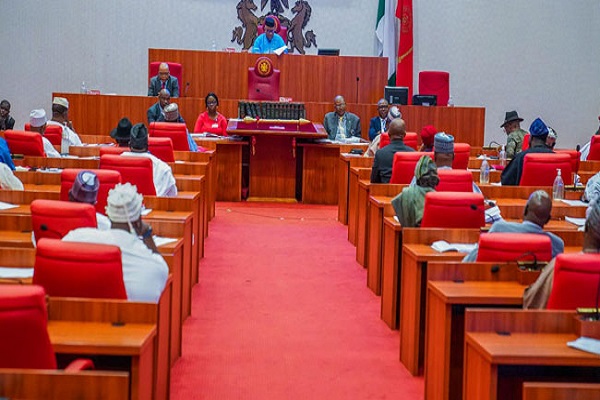
Senate on Thursday, May 9, approved the death penalty for those convicted on the charge of drug trafficking in the country.
The punishment prescribed in the extant NDLEA Act is a maximum sentence of life imprisonment.
The resolution of the Senate followed its consideration of a report of the Committees on Judiciary, Human Rights and Legal Matters and Drugs and Narcotics, National Drug Law Enforcement Agency (NDLEA) Act (Amendment) Bill, 2024.
The Chairman of the Committee on Judiciary, Human Rights & Legal Matters presented the report during plenary, Senator Mohammed Monguno (APC-Borno North).
The bill, which passed its third reading, aims to update the list of dangerous drugs, strengthen the operations of the NDLEA, review penalties, and empower the establishment of laboratories.
Section 11 of the current act prescribes that “any person who, without lawful authority; imports, manufactures, produces, processes, plants or grows the drugs popularly known as cocaine, LSD, heroin or any other similar drugs shall be guilty of an offence and liable on conviction to be sentenced to imprisonment for life” was amended to reflect a stiffer penalty of death.
Although the report did not recommend a death penalty for the offence, during consideration, Senator Ali Ndume moved that the life sentence should be upgraded to the death penalty.
During a clause-by-clause consideration of the Bill, Deputy Senate President Barau Jibrin, who presided over the session, put the amendment on the death penalty to a voice vote and ruled that the “ayes” had it.
But Senator Adams Oshiomhole objected to the ruling, saying that the “nays” had it.
He argued that matters of life and death should not be treated hurriedly, but Barau said it was too late, as he failed to call for division immediately after his ruling.
The bill was subsequently read for the third time and passed by the Senate.
-

 Headline5 days ago
Headline5 days agoSuspend cybersecurity levy– Reps to CBN
-

 Business5 days ago
Business5 days agoNigeria needs over $2bn to revive Ajaokuta Steel Plant, says Minister
-

 Entertainment3 days ago
Entertainment3 days agoAMVCA Cultural Day: BBNaija’s Neo, Venita win Best Dressed Male, Female
-

 Headline3 days ago
Headline3 days agoPrince Harry visits sick Nigerian soldiers in Kaduna
-

 News5 days ago
News5 days agoShan George’s money returned to Zenith Bank account
-

 Metro3 days ago
Metro3 days agoEx-Sports Minister laments after hospital neglected him for hours over N80000 deposit
-

 Headline5 days ago
Headline5 days agoTinubu resumes work after foreign trip



